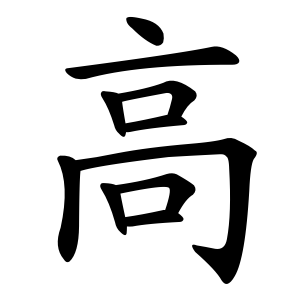Related Research Articles
Dynasties in Chinese history, or Chinese dynasties, were hereditary monarchical regimes that ruled over China during much of its history. From the legendary inauguration of dynastic rule by Yu the Great c. 2070 BC to the abdication of the Xuantong Emperor on 12 February 1912 in the wake of the Xinhai Revolution, China was ruled by a series of successive dynasties. Dynasties of China were not limited to those established by ethnic Han—the dominant Chinese ethnic group—and its predecessor, the Huaxia tribal confederation, but also included those founded by non-Han peoples.
According to Sima Qian, Confucius said: "The disciples who received my instructions, and could themselves comprehend them, were seventy-seven individuals. They were all scholars of extraordinary ability." It was traditionally believed that Confucius had three thousand students, but that only 72 mastered what he taught. The following is a list of students who have been identified as Confucius's followers. Very little is known of most of Confucius's students, but some of them are mentioned in the Analects of Confucius. Many of their biographies are recorded in the Sima Qian's Shiji. The Six Arts were practiced by the 72 disciples.

Yan Zhenqing was a Chinese calligrapher, military general, and politician. He was a leading Chinese calligrapher and a loyal governor of the Tang dynasty. His artistic accomplishment in Chinese calligraphy is equal to that of the greatest master calligraphers of history, and his regular script style, Yan, has often been imitated.
Zou, originally Zhu or Zhulou, was a minor state that existed during the Zhou dynasty of ancient China.

The Lü Clan disturbance refers to a political upheaval after the death of Empress Lü Zhi of the early Han dynasty. In the aftermath, her clan of Lü (呂) were deposed from their seats of power and exterminated, Emperor Houshao was deposed and Emperor Wen acceded the throne. Lü Clan disturbance also sometimes encompasses the prior period of total domination of the political scene by Empress Lü Zhi and her family after the death of her son Emperor Hui.

Jī was the ancestral name of the Zhou dynasty which ruled China between the 11th and 3rd centuries BC. Thirty-nine members of the family ruled China during this period while many others ruled as local lords, lords who eventually gained great autonomy during the Spring and Autumn and Warring States periods. Ji is a relatively uncommon surname in modern China, largely because its bearers often adopted the names of their states and fiefs as new surnames.
Fàn is a Chinese family name. It is also one of the most common surnames in Vietnam, where it is written as Pham, and occurs in Korea as Beom/Pom/Pem. It is the 46th name on the Hundred Family Surnames poem in Chinese.
Yan is a surname in several languages and the pinyin romanization for several Chinese surnames, including "严 (嚴)", "晏 (晏)", "偃 (偃)", "颜 (顏)", "言 (言)", "燕 (燕)", "阎 (閻)", "闫 (閆)", "鄢 (鄢)" in simplified (traditional) form.

Gao is an East Asian surname of Chinese origin that can be literally translated as "high" or "tall". There are approximately 17 million living people with this surname. Some places, such as Taiwan, usually romanise this family name into "Kao". In Hong Kong, it is romanized to "Ko". In Macau, it is romanized to "Kou". In English, it is romanized to "Kauh". In 2019 it was the 19th most common surname in Mainland China. The Korean surname, "Ko" or "Koh", is derived from and written with the same Chinese character (高).

Qiu or Chiu is an East Asian surname. It is the Hanyu Pinyin and Wade-Giles transliteration, respectively, of the Chinese surnames 丘/邱, and 秋. Qiu (丘/邱) is a common surname in China. It is also one of the most influential surnames in Taiwan, as well as the Sichuan and Fujian provinces in the South China region. They may be transliterated in various forms, as:

Lü is the pinyin and Wade–Giles romanisation of a Chinese surname, most commonly 吕 and 呂.
The State of Cao was a vassal state in China during the Zhou Dynasty. The state was founded sometime in the 11th century BC by Shu Zhenduo of Cao, a son of King Wen of Zhou and younger brother of King Wu of Zhou. With its capital at Taoqiu (陶丘), the State of Cao covered roughly the area of modern-day Dingtao County, Shandong Province. It was located on the flat country of the North China Plain about 50 miles east of the point where the current course of the Yellow River changes from east to north-east. To the northwest was Wey, to the northeast Lu and to the southeast Song.
Cao is the pinyin romanization of the Chinese surname 曹 (Cáo). It is listed 26th in the Song-era Hundred Family Surnames poem. Cao is romanized as "Tsao" in Wade-Giles (Ts'ao), which is widely adopted in Taiwan, although the apostrophe is often omitted in practice. It is romanized "Cho", "Tso", and "Chaw" in Cantonese; "Chou", "Chô", and "Chow" in Hokkien; and "Chau", "Chow" in Teochew.The Vietnamese surname based on it is now written "Tào". It is romanized "Zau" or "Dzau" in Shanghainese.
Yuxiong, also known as Yuzi or Master Yu, was an early ruler of the ancient Chinese state that was later known as Chu. He was an ally and teacher of King Wen of Zhou, the first king of the Zhou dynasty. In the Tsinghua Bamboo Slips his name is written as Xuexiong.

The Han Triumph, also known as Wind Ode, is a Chinese television series based on historical events in the early Han dynasty, beginning with the founding of the dynasty by Liu Bang after his triumph over Xiang Yu, and the events leading to the reign of Liu Heng. Directed by Huang Jianzhong, the series starred Ray Lui, Wang Ji, Liu Mu, Zhang Guangbei, Chen Wei and Li Qingxiang in the leading roles. It was first broadcast on CCTV-8 in China on 17 December 2011.
Gan is a surname. It may be a Latin-alphabet spelling of four different Chinese surnames, a Korean surname, and a surname in other cultures.

Langya Commandery was a commandery in historical China from Qin dynasty to Tang dynasty, located in present-day southeast Shandong and northeast Jiangsu.
The Eight surnames of Zhurong are eight surnames derived from the descendants of the ancient Chinese legendary figure Zhurong. The Eight surnames that came after the Zhurong tribe, according to the Guoyu, a historical Chinese text, are Ji, Dong, Peng, Tu, Wei, Cao, Zhen, and Mi. These eight surnames were said to have originated from the descendants of the Zhurong tribe.
References
- ↑ "小邾国贵族墓出土铜器鉴赏".
- ↑ "Gan Heritage Chapter E-Book".
- ↑ by Patrick Hanks, Richard Coates, Peter McClure, The Oxford Dictionary of Family Names in Britain and Ireland